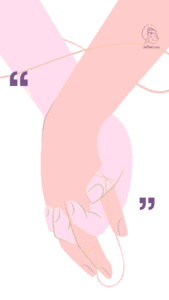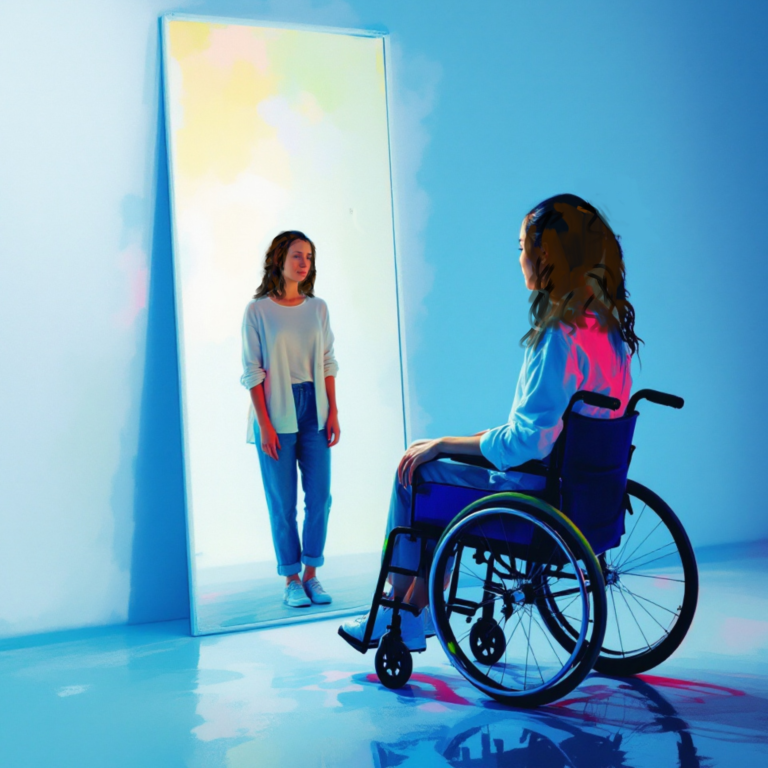Disability and identity are deeply intertwined, often in ways that spark conflicting thoughts and emotions. The internal dialogue surrounding these concepts can be complex, as we try to reconcile our personal experiences with societal expectations. Here are some reflections on how these contradictions often coexist within our minds.
Validation and the Need for Recognition
For many of us, being told, “You are disabled” provides a sense of validation. After years of feeling invisible or misunderstood, hearing those words acknowledges the reality of our struggles. It tells us that our pain, limitations, and challenges are real. At the same time, however, we don’t want to be solely defined by our disability. Yes, it’s part of the story, but we are so much more—our abilities, passions, and contributions extend far beyond our limitations. This desire for validation, while also craving recognition for our full selves, often creates an emotional tug-of-war. Imposter Syndrome: “It’s Not ‘Bad Enough'”
Many of us also experience imposter syndrome when it comes to claiming the label of “disabled.” We think, “It’s not bad enough for me to deserve that term,” as if there’s a hierarchy of suffering. This feeling is often fueled by societal stereotypes of disability—people believe that only the most visible disabilities count. Yet, disability exists on a spectrum. Struggles are real even if they don’t fit into the narrow definitions we’ve been taught. At the same time, euphemisms like “differently abled” can feel like they’re minimizing our experience. It’s as if society is trying to soften the reality of disability, which often feels more like a form of gaslighting. A personal story comes to mind: someone once told me at a bus stop that I should exercise more, saying they’d seen people in wheelchairs playing tennis. I’m happy for those athletes, but my body doesn’t work like that, and it makes me feel worse when I’m compared to people who seem to “overcome” their disability. The truth is, for most of us, disability does come with real limitations, and it’s okay to acknowledge that without trying to sugarcoat it. Disability: A Social Construct?
There’s a growing theory that disability is, in many ways, a social construct. That is, many of the barriers we face are societal or infrastructural, not inherent to our bodies. If society were fully accessible, would disability still exist? This idea has merit—after all, a world without stairs or prejudice would certainly remove many of the obstacles we face. Yet, even in an ideal world, some of us would still face physical challenges. I could have all the accommodations in the world, but that wouldn’t erase the muscle weakness or fatigue that comes with my condition. So while disability may have a social aspect, it’s also a physical reality that can’t be ignored. “Temporarily Abled”
The term “temporarily abled” highlights an important point: disability will happen to most of us at some point in life. Whether due to injury, illness, or aging, no one’s body works perfectly forever. Recognizing this can reduce some of the stigma surrounding disability. But it also brings to light how shocking and painful it can be when we do lose that ability—especially when we aren’t sure whether or when we’ll get it back. We Are More Than Our Disability, But It Shapes Us
Living with a disability may not define who we are, but it certainly shapes how we move through the world. It influences our choices, routines, and relationships. We want to be seen as more than just our limitations, but we also can’t ignore how much they affect our daily lives. Managing mobility issues, pain, or fatigue may mean we have to adjust career goals, limit social engagements, or alter our hobbies. Disability shapes our experiences, but it doesn’t determine our worth or define our full potential. Navigating life with a disability often requires finding a balance between acknowledging the very real challenges while also advocating for our right to live fulfilling, meaningful lives. It’s a push-and-pull between being seen for the struggles we face and being recognized for all the other aspects that make us who we are.





